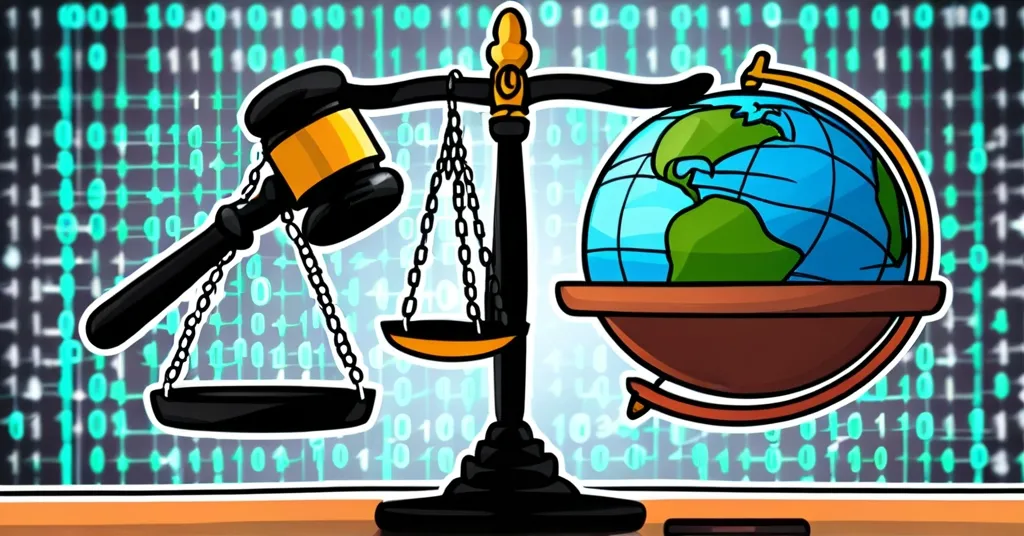US Supreme Court Declines Binance Appeal, Lawsuit Proceeds Over 2017 Token Sales

Binance’s Legal Battle Continues as US Supreme Court Declines Appeal
The US Supreme Court has declined to hear an appeal from Binance, paving the way for a lawsuit filed by investors to proceed. This decision not only marks a critical legal setback for the world’s largest cryptocurrency exchange but also underscores the ongoing tension between the global nature of cryptocurrency and the reach of national securities laws.
- US Supreme Court declines Binance’s appeal
- Lawsuit over 2017 token sales of ELF, EOS, FUN, and others
- Investors claim inadequate risk warnings
- Binance argues against US securities law applicability
- Potential for significant damages if investors win
The lawsuit, filed by a group of investors in 2020, centers on the sale of tokens including ELF, EOS, FUN, ICX, OMG, QSP, and TRX back in 2017. These investors allege that Binance failed to adequately warn them about the risks associated with these tokens. The crux of the legal battle lies in the question of whether Binance, despite being a non-US company, should be subject to US securities laws. Initially dismissed by a US district court in March 2022 due to claims of extraterritoriality and late filing, the case was overturned by an appeals court in March 2024. This court found that the transactions were indeed domestic, based on the location of Binance’s servers and the activities of US investors.
Terms like “extraterritoriality” refer to the application of laws beyond a country’s borders, which is a key issue in this case. The 2010 Supreme Court decision in Morrison v National Australia Bank established a transactional test for determining the reach of US securities laws, focusing on where the transaction occurs rather than the conduct or effects. Binance and its former CEO Changpeng Zhao had petitioned the Supreme Court, arguing that the appeals court misapplied this decision. However, the Supreme Court’s refusal to hear the appeal means that the lawsuit will now move forward, potentially exposing Binance to significant legal repercussions.
Current Binance CEO Richard Teng commented on the company’s ongoing uncertainty, stating, “Binance has not determined its headquarters location.” This statement adds another layer of complexity to the case, as the location of a company’s headquarters can play a critical role in legal proceedings.
The implications of this decision extend beyond Binance, reflecting the broader challenges faced by cryptocurrency exchanges operating in a global market yet subject to varying national regulations. The case underscores the need for clearer regulatory frameworks that can address the unique nature of blockchain transactions, which often blur the lines of traditional jurisdictional boundaries. For more on the impact of US securities laws on cryptocurrency exchanges, further reading is recommended.
As the crypto industry continues to navigate these regulatory waters, the outcome of this lawsuit could set a precedent for how US courts handle similar cases involving non-US based crypto entities. It also serves as a stark reminder to investors of the importance of thorough due diligence and understanding the risks associated with cryptocurrency investments.
The technological aspect of blockchain adds another dimension to this legal debate. The location of nodes verifying transactions can be crucial in determining the domestic nature of these transactions, a point highlighted in the Williams v Block.one case. This case showed that a transaction-by-transaction approach may be necessary, focusing on the location of the node that verifies each transaction. This intersection of technology and law is a fascinating area for those keen on understanding the intricacies of the crypto space.
This case could also prompt exchanges to enhance their risk disclosure practices, aiming to avoid similar legal challenges in the future. The broader crypto industry may well be watching closely, as the outcome of this lawsuit could influence the regulatory landscape for years to come.
Binance’s legal challenges are a reminder of the delicate balance between innovation and regulation in the world of cryptocurrency. While the potential for disruption and decentralization remains a beacon of hope for many in the crypto community, the realities of legal and regulatory frameworks cannot be ignored. This case may well shape the future of how cryptocurrencies are regulated and how exchanges operate, not just in the US but globally. For a comprehensive overview of the Binance US Supreme Court decision, refer to the relevant sources.
Key Takeaways and Questions
- What was the outcome of Binance’s appeal to the US Supreme Court?
The US Supreme Court declined to hear Binance’s appeal, allowing the lawsuit against the crypto exchange to proceed.
- What are the main allegations against Binance in the lawsuit?
Investors allege that Binance failed to warn about the risks associated with tokens ELF, EOS, FUN, ICX, OMG, QSP, and TRX sold in 2017.
- Why did Binance argue it should not be subject to US securities laws?
Binance argued it should not be subject to US securities laws because it is not a US-based company.
- What was the basis for the appeals court’s decision to overturn the initial dismissal of the case?
The appeals court found sufficient evidence that the transactions were domestic based on server location and investor activities within the US.
- What potential consequences could Binance face if the investors win the lawsuit?
If the investors win, Binance could be required to pay damages or restitution to those who purchased the tokens.



